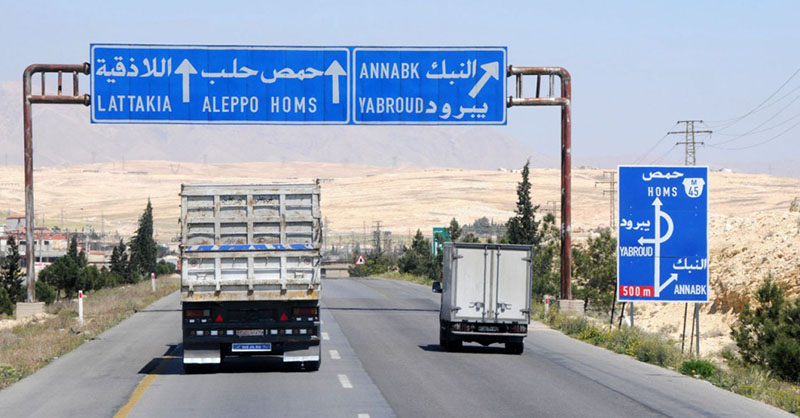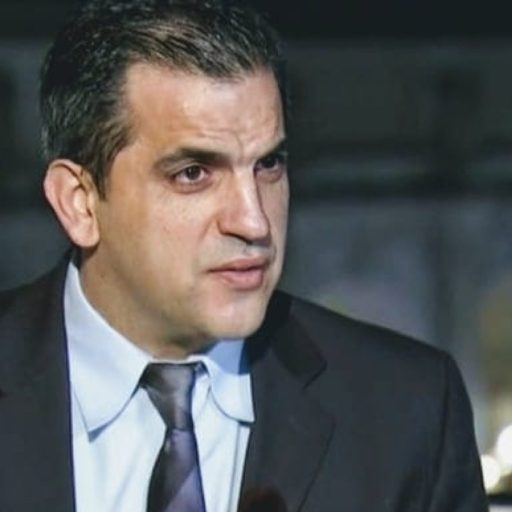If the United States is serious about saving Idlib, policy steps are required beyond rhetoric, including mending fences with Turkey and engaging Russia on Syria. While the Pentagon is clearly linking the presence of US forces in Syria to advancing a UN-sponsored political process, this approach does not seem widely shared by officials in the Trump Administration since it would most likely require engaging Moscow. In return, Russian officials aim to seize control of Idlib in the quickest way possible—they are not interested in a protracted offensive. Washington is making this task more difficult but not impossible. Click here to read my latest policy analysis.
Joe Macaron
Publications
US Defense Budget Prioritizes Securing Israel over Deterring Iran

The defense budget also disregards the fact that the United States now has more foes and fewer allies in the Middle East because of the Trump Administration’s approach. The lack of international support for the renewed US sanctions on Iran and the emergence of a Russian-Turkish-Iranian alliance complicate Washington’s ability to confront Iran diplomatically. What masks this reluctance to deter Iran effectively is the unprecedented American support for Israel. Further, the FY 2019 defense budget entrusts the Pentagon to come up with an Iran strategy that seems no different from the current US approach to the Middle East. Click here to read my latest policy analysis.
Op-Ed
Trump’s secret cabal on Iran at the State Department
No one excels more than a Washingtonian at coming up with fancy words that turn a dull bureaucratic day job into a stimulating venture and might occasionally trigger a global panic. Announcing the “Iran Action Group” (IAG) at the US Department of State on August 16 was one of these moments meant to bewilder watchers of the American bureaucracy under President Donald Trump. Click here to read my latest op-ed.
Publications
Israel Returns to Basics in Syria: “Better the devil you know”
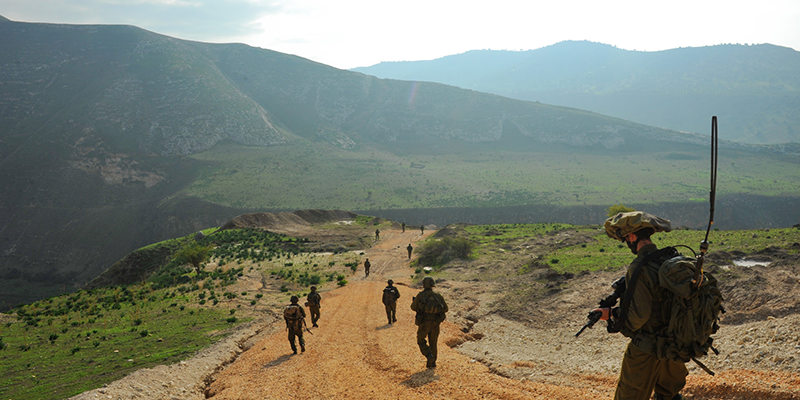
After nearly seven years of unrest in Syria, Israel’s policy toward its next-door neighbor is coming full circle and the repeated idiom of “better the devil you know than the devil you don’t know” has officially materialized. Israel opted to coexist with the Bashar al-Assad regime in Syria and to return to the established stability in the occupied Golan Heights, which has continued for over four decades. This time, however, Israel is enforcing its own rules of engagement and Russia is replacing the United States as the guarantor to keep Iran and its proxies away from southwestern Syria. Click here to read my latest policy analysis.
Interview
Sanctions unlikely to affect Hezbollah
Quoted in the Daily Star on the impact of US sanctioning Iran on Hezbollah: “The U.S. is targeting the official economy in Iran, while Hezbollah benefits from transactions outside the official economies of both Lebanon and Iran” “The Trump administration is going after Hezbollah’s source of support, and if the Shiite group felt the Iranian regime’s survival is in question, it might act to increase the cost of U.S. diplomatic pressure on Iran”.
Publications
Controlling the Nasib Crossing Is a Game Changer for the Syrian Regime
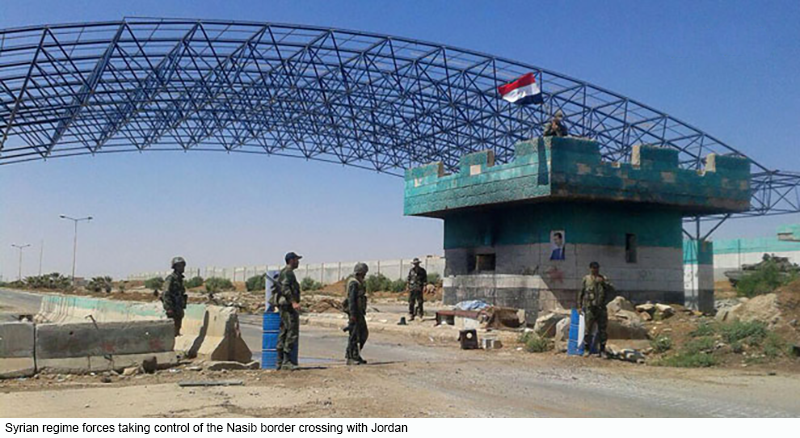
The imminent opening of Nasib could revitalize commercial trade activities in the Levant. However, the end of the Syrian war should not mean a return to business as usual. The Syrian regime is not taking concrete steps that reflect a tangible change of behavior. The United States and Europe can use the leverage of their sanctions on the Syrian regime to urge Moscow to pressure Assad. However, the regional dynamics might force a new reality as Syria’s neighbors are eager to restore trade and provide relief for their economies. Click here to read my latest analysis.
Op-Ed
What will Trump and Putin agree on at the Helsinki summit?
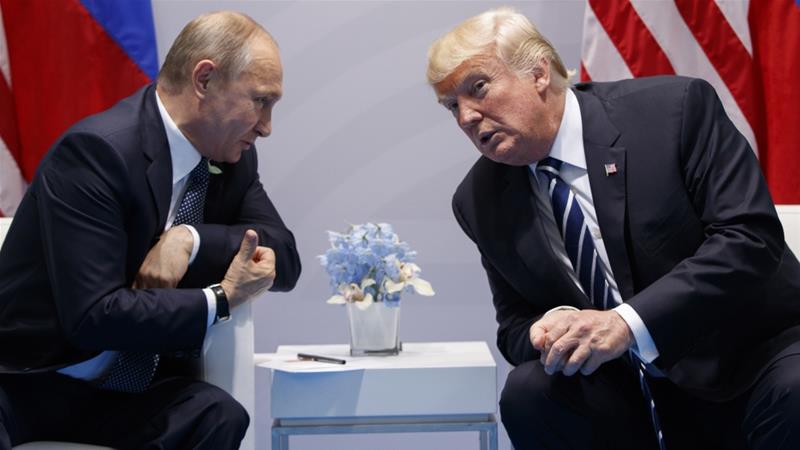
But despite these fears, no real breakthrough in US-Russian relations should be expected until Special Counsel Robert Mueller finalizes his investigation. Lifting US sanctions on Russia, recognizing its annexation of Crimea, and pulling US troops out of Eastern Europe are all off the table for the Helsinki summit; Trump’s hands are tied by US domestic politics. The only issue on which he can concede to lure in the Russian president is the Syrian war. Trump will give up Syria to Putin the way Gorbachev left Iraq to Bush in 1990. Click here to read my latest op-ed.
Publications
Syrian Refugees in Jordan and Lebanon: The Politics of their Return

Lebanon is ahead of the curve in the process of returning Syrian refugees because the question of who controls the border area has been resolved, but there are logistical and political challenges ahead. Jordan could either face a new refugee crisis or see a swift return of refugees if the outcome in southwestern Syria serves Jordanian interests. No matter what happens in the coming months, a large-scale return is unlikely in either Jordan or Lebanon. The return process will not be completed overnight and will take years. Click here to read my latest policy analysis.
Op-Ed
In southern Syria, the US faces a Russia-Israel challenge
Both Washington and Moscow are pressuring their Syrian allies not to escalate. The Syrian regime deployment is meant to strengthen the Russian negotiation position and is restricted to the Jordanian border area only at this point, which means the Russian-Israeli agreement is yet to fully materialize No matter what scenarios might unfold, the US has two options to become relevant once again in southwest Syria: to confront or engage Moscow. Otherwise, the US might become a bargaining chip in a looming deal between the rest of the parties involved. Click here to read my latest op-ed.
Publications
The Damascus-Aleppo Highway and Stabilizing Northwest Syria
